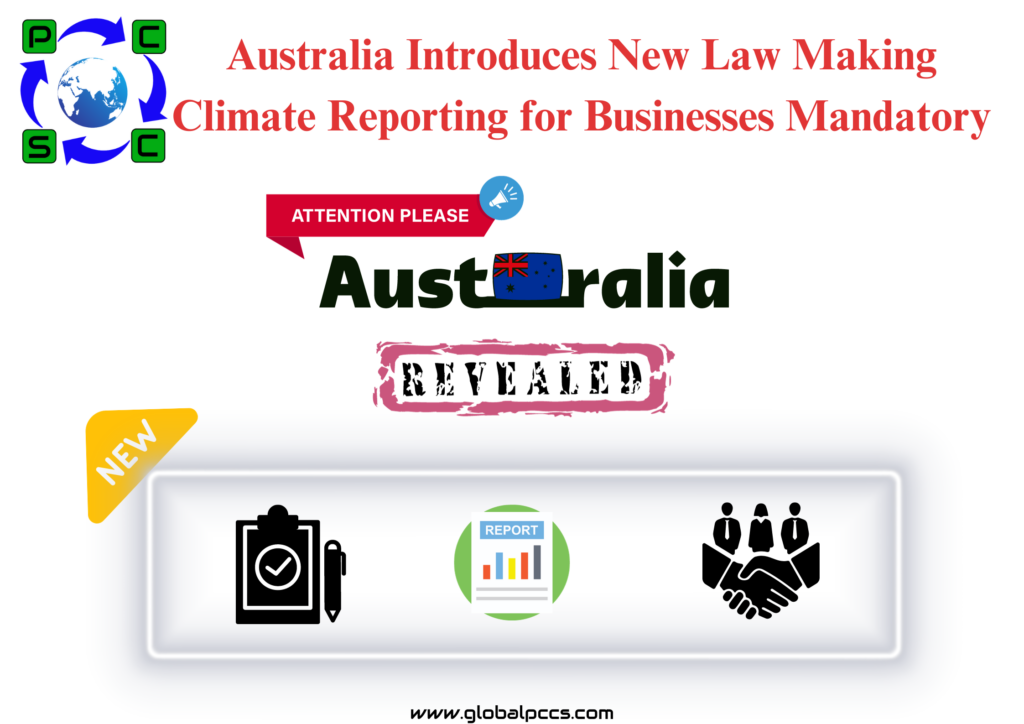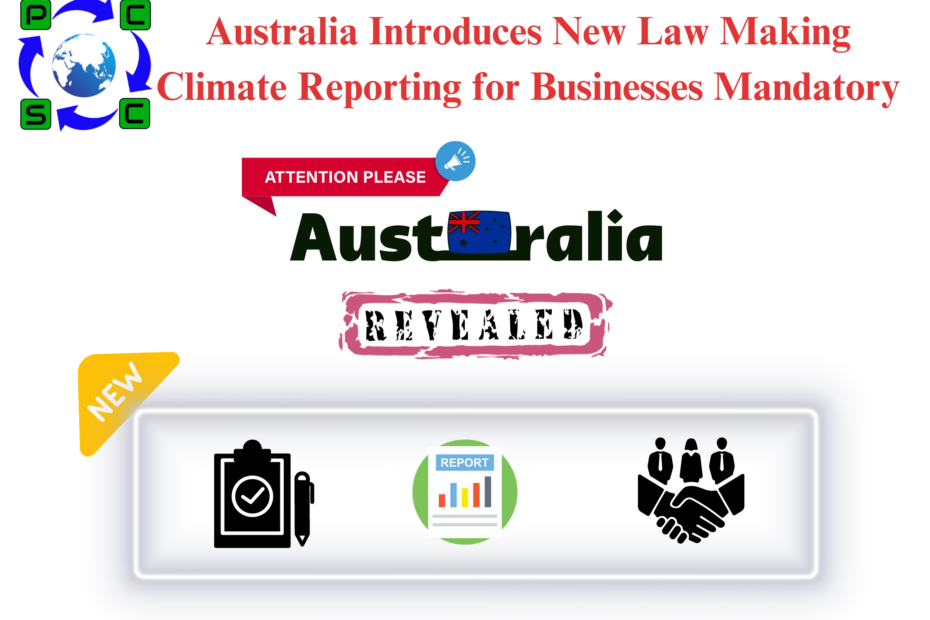 The Australian government has revealed the release of new draft legislation that would require large and medium-sized businesses to report on climate-related risks and opportunities as well as greenhouse gas emissions throughout the value chain.
The Australian government has revealed the release of new draft legislation that would require large and medium-sized businesses to report on climate-related risks and opportunities as well as greenhouse gas emissions throughout the value chain.
The new proposed law’s climate-related disclosure requirements are intended to help “maximise the economic opportunities of cleaner, cheaper, and more reliable energy and manage climate change risks… giving investors and companies the transparency, clarity, and certainty they need to invest in new opportunities as part of the net zero transformation,” according to a statement made by Australia’s Treasurer, Jim Chalmers.
The proposed law was introduced in response to the Treasury’s December 2022 “Discovery consultation” on the creation of a framework for disclosing climate risk and its June 2023 announcement of plans to impose mandatory financial disclosure requirements related to climate change.
The Australian Accounting Standards Board (AASB), which is responsible for developing the new disclosure rules, published an exposure draft in October that detailed the proposed standards for firms to report climate-related information. The AASB proposals are based on the recently released sustainability disclosure standards by the IFRS Foundation’s International Sustainability Standards Board (ISSB), while including some modifications in areas such as Scope 3, or indirect value chain emissions reporting, and on reporting requirements for companies that do not have material climate-related financial risks or opportunities.
Businesses would have to report on significant climate-related risks and opportunities, metrics, and objectives, such as emissions from Scopes 1, 2, and 3, as well as “any governance or risk management processes, controls and procedures of the entity related to these matters” under the new rules.
The new proposed legislation would apply to:
- All public companies and large proprietary companies required to provide audited annual financial reports to the Australian Securities and Investments Commission (ASIC) that meet specific size thresholds, starting with companies with over 500 employees, revenues over $500 million or assets over $1 billion, as well as asset owners with more than $5 billion in assets, which would begin reporting for fiscal years starting from July 1, 2024.
- Medium-sized companies (250+ employees, $200 million+ revenue, $500 million assets) would be required to begin reporting for years beginning from July 2026, while smaller companies (100+ employees, $50 million+ revenue, $25 million+ assets) would begin the following year.
Along with a phased-in approach for Scope 3 reporting, the legislation grants companies an additional year from the start of their disclosure requirements to report on the amount of emissions from their indirect value chain and the application of liability for reporting. Additionally, companies will have “limited immunity” for sustainability reports for a number of years, up until the end of June 2027.
In addition, the proposed law would mandate that businesses get assurance reports from their financial auditor and impose assurance criteria for climate-related reporting that are comparable to those for financial reports.
Submissions were accepted through February 9th for the new draft legislative consultation that the government launched.








 Authorised IMDS & CDX Training & Consulting partner for
Authorised IMDS & CDX Training & Consulting partner for





